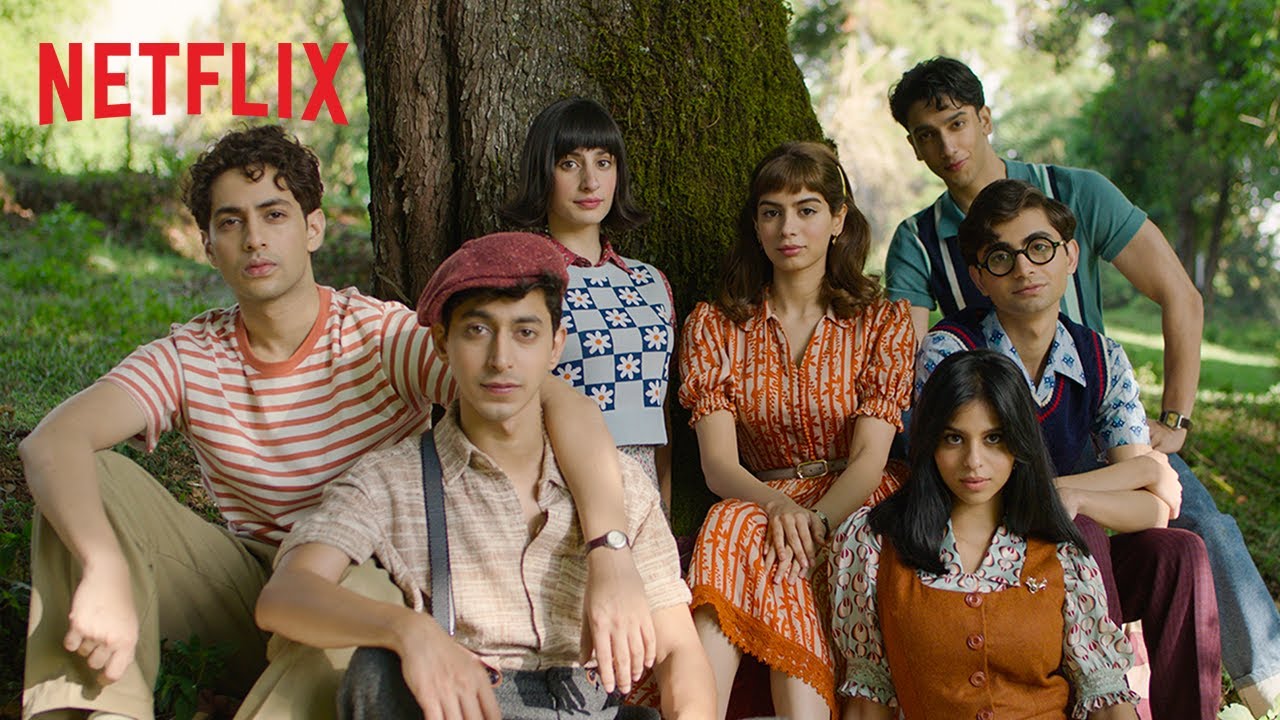Hindi Movie Review: The Archies is only ever “good enough” as an international adaptation

A part of me wants to approach The Archies with extreme cynicism. While the development of a Bollywood adaptation of Archie Comics apparently predated Netflix’s involvement in the project, it’s clear that the only reason this film has been born into the world, looking and feeling like it does, is the international success of Riverdale on the streaming platform. In other words, its very existence was the result of a commercial opportunity rather than an artistic imperative.
The product onscreen reflects this sense of opportunistic, rather than necessary, filmmaking. While Zoya Akhtar’s direction is handsome enough, it bears the distinct look and feel of a Netflix Original, with a fairly muted color palette and compositions tailormade for the TV and not the big screen. It barely feels like a “Bollywood” movie, either, beyond the fact that the characters (mostly) speak Hindi – and this isn’t even the default setting for consumers streaming outside of India, who will have to toggle to the film’s native tongue. This is to say, The Archies feels like a sleek, global two-and-a-half hours of “content” – it could have just as easily been cut into a miniseries as it was a movie – that happens to have been shot in Northern India.
The less cynical part of me would prefer to focus on the fact that The Archies is a mostly charming, easy-to-watch, family-friendly confection with several standouts in the young ensemble cast. It pays a good amount of deference to its American source material to satisfy those viewers with a vested interest in seeing the latest iteration of Archie, but it also doesn’t require any working familiarity with Archie Comics, Riverdale, or any of the other adaptations to be enjoyed. While there’s not a lot about the movie that’s genuinely invigorating or exciting, it’s also a perfectly pleasant piece of Saturday afternoon home viewing.
And there are just enough weird artistic decisions – two in particular – in this adaptation that it doesn’t feel entirely homogenized for the benefit of the streaming giant backing it. For one, the filmmakers transpose Riverdale onto an Indian setting by making the town a postcolonial Anglo-Indian settlement, without going out of their way to preach about the evil ripple effects of colonialism. Given today’s political climate and the types of movies and TV shows that perform best in India especially, this feels like a bit of a radical choice. Second, the writers preserve the original essence of the character Archie Andrews, which is to say, he’s a bit of a philandering asshole who plays the field. In an era where audiences in the young adult space increasingly demand black-and-white depictions of ‘positive’ and ‘negative’ behavior – especially in the sexual realm – this also feels like a bold creative decision.
But don’t think that the movie itself veers nearly as far off the beaten path when it comes to its main narrative thrust. Lightly tapping into the countercultural spirit of its 1960s setting, the A-Story revolves around Archie (Agastya Nanda) and the gang stopping the notorious Hiram Lodge (Alyy Khan) from erecting a new hotel on top of their cherished park at the center of town, named Green Park in this iteration. We’ve seen this kind of well-meaning story about spunky youth activism a thousand times before; as noble as it may seem, the fact that the climax hinges on a petition drive organized by the kids can’t help but feel painfully redundant to any viewer over the age of 10. The B-Story involves Archie’s relationships with Betty Cooper (Khushi Kapoor) and Veronica “Ronnie” Lodge (Suhana Khan), both of whom he leads on in classically Archie (and family-friendly) ways.
While Agastya Nanda does a decent job adapting the at times unlikable Archie to this new setting, the standouts – as has often been the case in the Archie Comics – are Betty and Ronnie. Both Khushi Kapoor and Suhana Khan create their own appealing blends of the traits that these characters have traditionally been known for with fresh flourishes, both in terms of humor and heart. In fact, perhaps the only instances in which the film’s tired story of corporate greed and local government corruption actually feels human are in the quiet moments for both of these characters. Scenes of Betty reacting to her father’s bookstore lease being terminated to make way for the new development and Ronnie reconciling her friendships against her dad’s business practices pack a certain punch that the rest of the movie lacks.
As for the rest of the cast, Mihir Ahuja is likely to be a fan favorite as the beloved Jughead, while Aditi “Dot” Saigal makes for a good Ethel and contributes several songs (in the “Dear Diary” format) to the soundtrack. A barely-there gay-themed subplot involving Dilton (Yuvraj Menda) feels like it’s painfully towing the line between what’s sanctioned in Indian media and performatively nodding to Netflix and Riverdale’s woke street cred.
There’s also a lot of music, as one would expect of both a Riverdale-set story and a Bollywood production, though it’s unfortunately mostly pretty ho-hum. Archie and his band, The Archies, perform songs that are suggested to be very “of the era,” but instead just feel rather generically old-fashioned. These largely aren’t earworms that’ll be stuck in your head. If you’re hoping that The Archies will attempt do for the ‘60s what Grease did for the ‘50s… well, then this might not be your movie. There are also many traditional musical numbers not performed by The Archies, though it’s a bit of a disappointment that only one, the roller-skate marvel “Dishoom Dishoom,” really feels Bollywood-influenced (with an ample dash of Chicago as well). I also suspect that the reason this number stands out is that it feels photographically distinguished, whereas the other numbers tend to blend in with the movie as a whole. They don’t feel like showstopping set-pieces, as in the best movie musicals, but rather, episodic stretches of musical content.
All accounted for, The Archies is “good enough” in exactly the sense that most Netflix consumers desire when they look for something to turn on in the background as they fold laundry. But as such, it’s also highly unlikely to inspire the same levels of passion and fandom as the Riverdale seasons that facilitated its existence. I had a fine time watching “Archie Goes to India,” but never did the movie deliver a level of creative exuberance that would make me feel like I was missing out by not being able to see it in a theater.
Rating: ★★½ (out of ★★★★★)
The Archies is now streaming globally on Netflix (free for subscribers).

